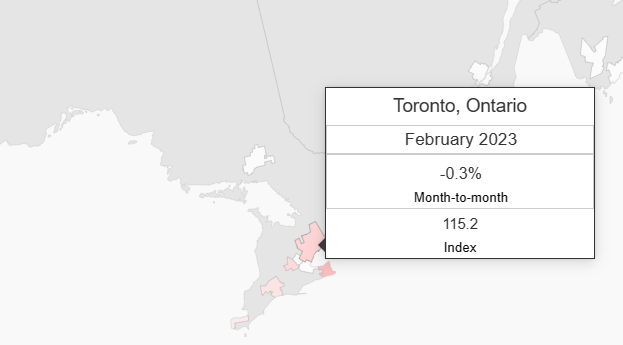Welcome to the world of affordable housing Toronto, where real estate expertise meets your housing dreams!
With decades of experience, the Kim and Howard Team are seasoned real estate agents who educate and guide you through this fascinating realm. In this article, we’ll unravel the intricacies of affordable housing in Toronto, sharing valuable insights into the market, government programs, and strategies to navigate this ever-evolving landscape.
Whether you’re a first-time buyer, a seasoned investor, or simply curious about the housing market, we aim to empower you with knowledge and provide a clear roadmap to explore affordable housing opportunities.
Get ready to embark on an enlightening journey where affordability and quality living unite in the vibrant city of Toronto.
Let’s dive in!
| What is affordable housing in Toronto? Affordable housing in Toronto refers to homes priced below market rates, making them more accessible for lower-income individuals. It aims to address housing affordability challenges through government initiatives and subsidies. |
Table of Contents:

Understanding Affordable Housing
Affordable housing is a crucial aspect of the real estate landscape in Toronto. It goes beyond just the price tag of property and encompasses various factors contributing to its accessibility for individuals and families with lower incomes. To truly grasp the concept of affordable housing, it is essential to delve into its definition, characteristics, and significance in urban settings.
| Did you know? The proportion of Canadian households who owned their home fell from 69.0% in 2011 to 66.5% in 2021. |
Definition and characteristics of affordable housing
Affordable housing is generally defined as housing units priced at levels below the average market rates, ensuring they are affordable for individuals and families with limited financial resources. The pricing of affordable housing considers various factors, including the local area’s median income, cost of living, and housing market conditions.
These properties often have specific eligibility criteria to ensure they are targeted toward those in need, such as income restrictions or residency requirements. Additionally, affordable housing can encompass a range of housing types, from rental apartments and condominiums to single-family homes and townhouses.
Importance of affordable housing in urban settings
Affordable housing plays a vital role in creating sustainable and inclusive urban environments. It addresses the fundamental need for shelter while fostering economic diversity and social cohesion. By providing affordable housing options, cities like Toronto can attract and retain a diverse workforce, ensuring that individuals across different income brackets can access quality housing near employment opportunities.
Moreover, affordable housing reduces homelessness, prevents displacement, and enhances overall community stability. It supports the development of vibrant neighbourhoods and promotes a sense of belonging, making cities more equitable and resilient. Recognizing the importance of affordable housing is critical to creating thriving urban communities that cater to the needs of all residents.
Current State of Affordable Housing in Toronto
Understanding the current state of affordable housing in Toronto is crucial for residents and those interested in the real estate market. Examining the statistics, trends, and challenges provides valuable insights into the dynamics of affordable housing in the city.
| Did you know? The number of people that owned more than one real estate in Ontario, Canada, in 2020 is only 20.2%. |
Statistics and Trends Related to Affordable Housing
Statistics and trends shed light on the state of affordable housing in Toronto. The latest data shows a growing demand for affordable housing units due to rising housing costs and population growth. Vacancy rates are relatively low, contributing to a competitive market.
Additionally, trends indicate a shift towards mixed-income communities and sustainable housing initiatives, highlighting the city’s commitment to creating inclusive neighbourhoods.
Challenges Faced by Residents in Finding Affordable Housing
Residents in Toronto face numerous challenges when searching for affordable housing. High demand and low supply increase competition, leading to rising rental and purchase prices. The limited availability of affordable housing options exacerbates the issue, causing longer wait times for subsidized housing programs. Rapid gentrification and neighbourhood transformations also present obstacles for individuals and families seeking affordable housing in desirable areas.
Understanding these challenges is crucial in developing effective strategies to address the affordable housing crisis and ensure the availability of affordable options for all residents.

Government Initiatives for Affordable Housing in Toronto
Government initiatives play a pivotal role in addressing the affordable housing challenges in Toronto. These initiatives aim to increase the availability of affordable housing options and support individuals and families with limited financial resources. With the right strategies, you can increase your chances of success. Here are some helpful tips to guide you in your search:
- Start Early: Begin your housing search in advance to allow sufficient time for research and application processes.
- Set a Budget: Determine your budget and prioritize affordable housing options within your financial means.
- Explore Different Neighborhoods: Consider exploring neighbourhoods beyond the city center, as housing prices vary in different areas.
- Use Online Property Listings: Use online platforms and real estate websites to browse available, affordable housing listings in Toronto.
- Contact Housing Agencies: Reach out to housing agencies and non-profit organizations specializing in affordable housing for assistance and guidance.
- Network and Spread the Word: Inform friends, family, and colleagues about your housing search, as they may be aware of potential affordable housing opportunities.
- Attend Housing Workshops and Events: Attend workshops or events focused on affordable housing to gain insights and connect with industry professionals.
| Did you know? The share of owner-occupied dwellings in Canada had edged down from 2019 to 2020. |
Overview of Local Government Policies and Initiatives
The local government in Toronto has implemented various policies and initiatives to promote affordable housing. These include zoning regulations that encourage the development of affordable housing units, incentives for developers to include them in their projects, and partnerships with non-profit organizations to create affordable housing developments.
The government has also established subsidized housing programs and rent control measures to protect tenants from excessive rent increases.
Impact of These Initiatives on the Availability of Affordable Housing
These government initiatives have significantly impacted the availability of affordable housing in Toronto. Creating affordable housing units through partnerships and incentives has increased the supply of affordable homes in the city.
Subsidized housing programs have provided financial assistance to individuals and families, making housing more affordable and accessible. Rent control measures have helped stabilize rental prices and protect tenants from sudden increases.
While challenges remain, these initiatives have played a crucial role in improving the availability of affordable housing options and addressing the needs of residents with lower incomes.
The Future of Affordable Housing in Toronto
The future of affordable housing in Toronto holds challenges and opportunities as the city continues evolving. With a growing population and increasing housing demand, it is crucial to examine the predictions and expectations for the future of affordable housing in Toronto.

Predictions and Expectations for the Future
While the future remains uncertain and ever-changing, we can deduct some predictions base on the state of the housing market as well as our decades of experience in the business.
Increasing Demand
The population in Toronto is expected to continue growing, leading to increased demand for affordable housing options across the city.
Innovative Housing Solutions
The future is likely to bring forth innovative housing solutions, such as the development of micro-housing, co-housing communities, and sustainable housing initiatives.
Urban Density
As the city seeks to accommodate its growing population, it may focus on urban densification, including the development of mixed-use buildings and increased housing density in transit-oriented areas.
Inclusionary Zoning
Anticipate implementing more robust inclusionary zoning policies, which require developers to include affordable housing units in new developments.
Role of Public Policy, Private Development, and Community Activism
Public policy, private development, and community activism all have crucial roles in shaping the future of affordable housing in Toronto. Effective public policies, such as zoning regulations and rent control measures, can create a favourable environment for affordable housing initiatives.
| Did you know? The housing index as of 2023-03-22 in Toronto, Ontario, CA, has fallen -0.3% and is currently valued at 115.2. |
Through partnerships and incentives, private developers can contribute by incorporating affordable housing units into their projects. However, community activism is equally vital in advocating for affordable housing, raising awareness, and mobilizing support for initiatives prioritizing affordability and inclusivity.
By working together, these three entities can make significant strides toward ensuring a sustainable and accessible future for affordable housing in Toronto.

FAQ
What is the average cost of affordable housing in Toronto?
The average cost of affordable housing in Toronto can vary depending on location, size, and amenities. Affordable housing typically aims to be priced at 30% or less of a household’s gross income. For example, in 2023, the average market rent for a 1 bedroom apartment is $1,538, and 80% of that is $1,230. Is there anything else you would like to know? It is important to note that affordability is relative and can differ for individuals based on their income level and housing needs.
How can I apply for affordable housing in Toronto?
To apply for affordable housing in Toronto, you can start by visiting the website of the City of Toronto or the Toronto Community Housing Corporation (TCHC). They provide information on available programs and applications. You may need to complete an application form, provide supporting documents, and meet specific eligibility criteria.
Additionally, consider contacting local housing agencies or non-profit organizations specializing in affordable housing for further assistance and guidance throughout the application process.
What is the wait time for affordable housing in Toronto?
The wait time for affordable housing in Toronto can vary significantly depending on location, household size, and specific housing needs. Due to the high demand and limited availability of affordable housing units, wait times can range from several months to several years. The wait time can also vary depending on the type of housing and the size of the unit. For example, families in search of a three-bedroom home have an estimated wait time of 13 years.
It is essential to regularly update your application and keep in touch with the housing provider to stay informed about the status of your application. Additionally, exploring other housing options and seeking assistance from local housing agencies can help mitigate the waiting period.

Affordable Housing Toronto – Final Words
Affordable housing in Toronto is a critical issue with various factors at play. We’ve explored the current state, government initiatives, tips for finding housing, and the importance of understanding laws and tenant rights.
The future holds challenges and opportunities, and it requires a collaborative effort between public policy, private development, and community activism.
Please comment below or contact us if you have any questions or insights on this topic. We value your input and are here to provide further assistance.













